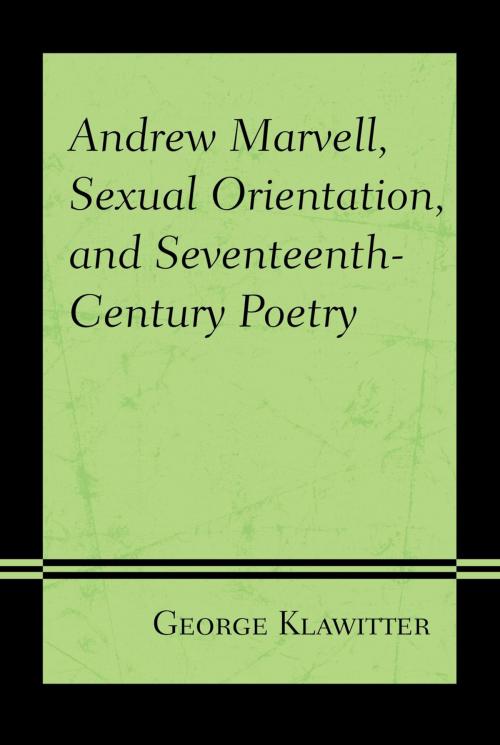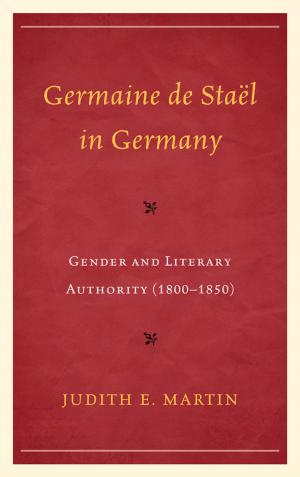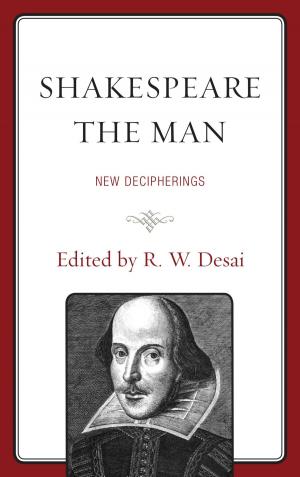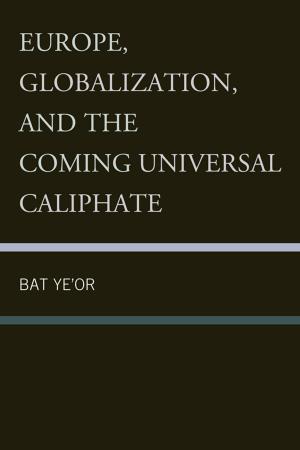Andrew Marvell, Sexual Orientation, and Seventeenth-Century Poetry
Fiction & Literature, Literary Theory & Criticism, Gay & Lesbian, Poetry History & Criticism, British| Author: | George Klawitter | ISBN: | 9781683931041 |
| Publisher: | Fairleigh Dickinson University Press | Publication: | September 1, 2017 |
| Imprint: | Fairleigh Dickinson University Press | Language: | English |
| Author: | George Klawitter |
| ISBN: | 9781683931041 |
| Publisher: | Fairleigh Dickinson University Press |
| Publication: | September 1, 2017 |
| Imprint: | Fairleigh Dickinson University Press |
| Language: | English |
Andrew Marvell, Sexual Orientation, and Seventeenth-Century Poetry examines the important Interregnum/Restoration poet Andrew Marvell against a background of his contemporary lyric poets. His major works from the early elegies to the later political pieces are discussed with a view to unmasking the poet’s own sexuality and his reflection of prevailing sexual attitudes. Popular poems like the Mower poems and “The Nymph Complaining for the Death of her Fawn” are explicated in depth as well as lesser known poems like “The Unfortunate Lover” and “The Gallery.” Marvell, often described as a “chameleon” has teased readers for hundreds of years. This new book will help both new readers as well as established Marvellians to understand cryptic sexual meanings and references in the verses. Poems are explicated against current heteronormative theory as well as recent work on homoeroticism, autoeroticism, and celibacy. George Klawitter has devoted much of his recent scholarly life to a study of Marvell’s lyric pieces and brings to this new book fresh insights into the suggestive intent of the poet’s works.
Andrew Marvell, Sexual Orientation, and Seventeenth-Century Poetry examines the important Interregnum/Restoration poet Andrew Marvell against a background of his contemporary lyric poets. His major works from the early elegies to the later political pieces are discussed with a view to unmasking the poet’s own sexuality and his reflection of prevailing sexual attitudes. Popular poems like the Mower poems and “The Nymph Complaining for the Death of her Fawn” are explicated in depth as well as lesser known poems like “The Unfortunate Lover” and “The Gallery.” Marvell, often described as a “chameleon” has teased readers for hundreds of years. This new book will help both new readers as well as established Marvellians to understand cryptic sexual meanings and references in the verses. Poems are explicated against current heteronormative theory as well as recent work on homoeroticism, autoeroticism, and celibacy. George Klawitter has devoted much of his recent scholarly life to a study of Marvell’s lyric pieces and brings to this new book fresh insights into the suggestive intent of the poet’s works.















